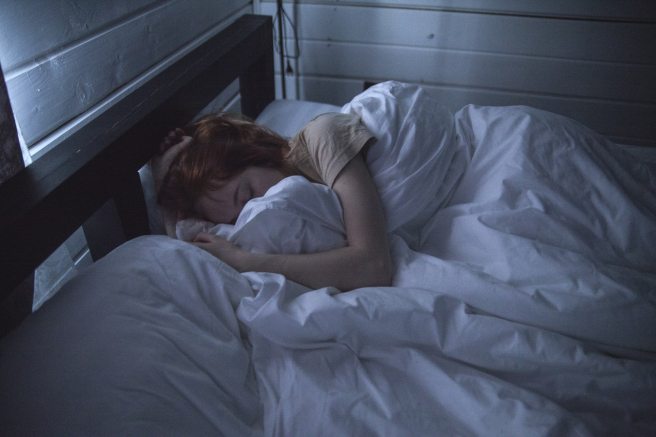Ever wondered why light keeps us awake and darkness makes us sleepy?

Don’t you marvel at the strength of that thin stream of light that creeps in through the blinds early in the morning? It’s often enough to wake you up from deep and restful sleep. According to new research, the waking effect of light and the sleep-inducing effect of darkness are greatly influenced and determined by Prok2, a neural protein.
The new research published in the journal Neuron sets to explore this link between light and wakefulness. Led by David Prober, a professor of biology at California Institute of Technology, the study tells us specifically why darkness make us sleepy and light keeps us awake. Explaining his motivation behind this research, Professor Prober says, "Researchers had previously identified the photoreceptors in the eye that are required for the direct effect of light on wakefulness and sleep. But we wanted to know how the brain uses this visual information to affect sleep."
There have been several studies in the past that have focused on the effect light has on the circadian rhythms. A circadian rhythm can be defined as a 24-hour cycle in living beings from a physiological point of view. This cycle is sensitive to various factors including light and temperature. However, Prober’s research aims to find a link specifically between light and its influence on sleep.
In Prober’s study, zebrafish were genetically modified to express Prok2 in excess since zebrafish have the same sleep and wakefulness pattern as humans. The genetically modified zebrafish would tend to go to sleep during the day and stay up during the night. However, this pattern was not dependent on the circadian rhythm but was influenced by whether the lights were on or off. Conversely, the sleep patterns of zebrafish with mutated Prok2 receptors were less influenced by light.
The results of the study indicate that the levels of Prok2 play an important role in setting the correct balance between sleep and wakefulness during the day and the night. So although we can safely say that there might be some wisdom in getting dimmer lights in the bedrooms, whether this study will break new ground with regard to sleep disorders and sleep medication will be interesting to see.
Source: DOI: http://dx.doi.org/10.1016/j.neuron.2017.06.001
Published on: Jul 03, 2017
Comments
You're looking to give wings to your academic career and publication journey. We like that!
Why don't we give you complete access! Create a free account and get unlimited access to all resources & a vibrant researcher community.




